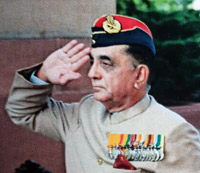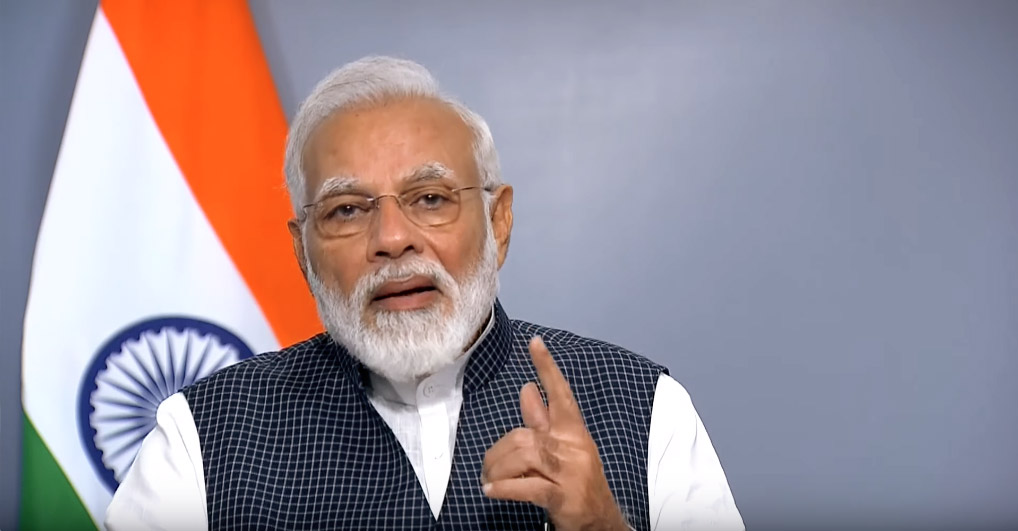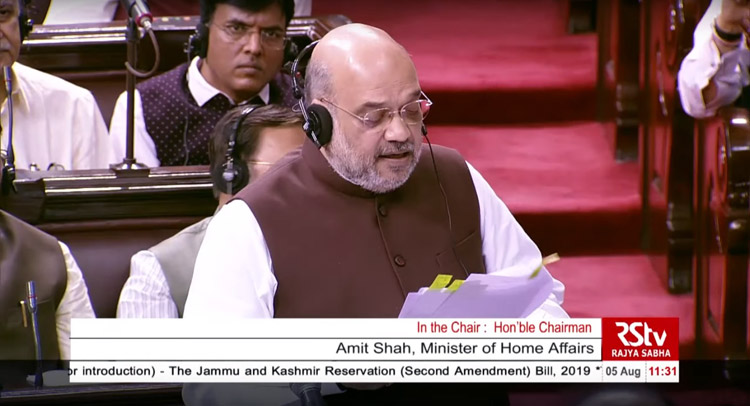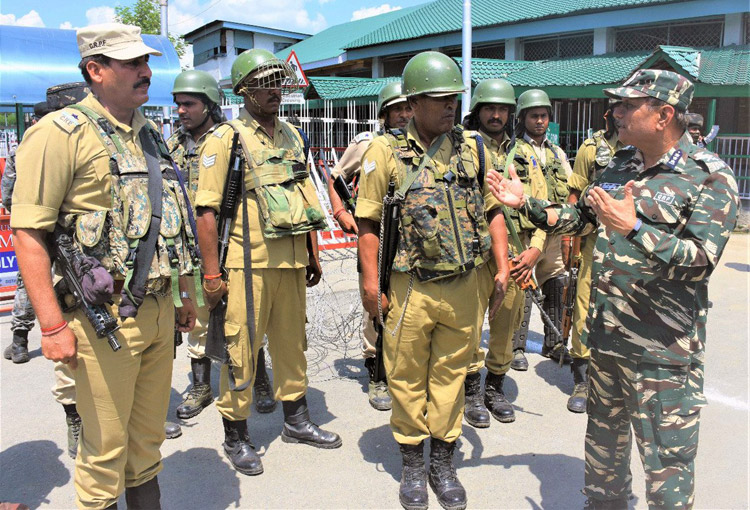INDIAN ARMED FORCES CHIEFS ON
OUR RELENTLESS AND FOCUSED PUBLISHING EFFORTS

SP Guide Publications puts forth a well compiled articulation of issues, pursuits and accomplishments of the Indian Army, over the years

I am confident that SP Guide Publications would continue to inform, inspire and influence.

My compliments to SP Guide Publications for informative and credible reportage on contemporary aerospace issues over the past six decades.
- Prime Minister witnesses 'Bharat Shakti' – a Tri-Services Firing and Manoeuvre Exercise in Pokhran, Rajasthan
- Interim Defence Budget 2024-25 — An Analysis
- Union Defence budget 2024
- Prime Minister Modi Commemorates Indian Navy Day in a Grand Ceremony
- Prime Minister Modi Flies in the LCA Tejas
- New Chapter in India-Italy Defence Ties
- Airpower beyond Boundaries
Abrogation of Special Status Under Article 370 – Security Implications
'Special status' came as a handy tool along with religion for the Pakistan army to exploit the differentiation of Kashmiris from the rest of the country. It provided moral, material and military support for commencing the insurgency.
 |
The Author is Former Chief of the Army Staff, Indian Army |

Passage of the bill abrogating special status to J&K under Article 370 by both the houses of the parliament brings to an end the major differences that characterized the state of J&K vis-à-vis all other states of the Indian Union. The second aspect of creating two union territories of J&K and Ladakh while restructuring the erstwhile state has its own dynamics which need to be analyzed.
Support for government's action has come from most sections of society, at times even cutting across party lines.
The debates in both the houses as well as national mood pointed to an overwhelming support for the action undertaken by the government. Notwithstanding obligatory dharma of every opposition to oppose all (or almost all) decisions of the party in power, support for government's action has come from most sections of society, at times even cutting across party lines.
Even though the parliament has been adjourned sine die after passage of the bill, the debate on the desirability of such an action is still ongoing in the media and in public discourse. Unable to conceptually oppose it seeing the mood of the nation, some have chosen to criticize the methodology employed by the government. Still others have questioned the legality and have approached the highest court for adjudication. Realistically speaking, all these are signs of a healthy democracy at work.

Be that as it may, the discourse so far has barely touched upon the security implications of the issue. In the strategically important area of J&K, security has a dominant role to play. With both our neighbours coveting its territory and Pakistan continuing with proxy war while fanning fires of separatism, the government's approach has largely been dictated by security considerations. For better understanding, this needs to be elaborated further.
With both our neighbours coveting its territory and Pakistan continuing with proxy war while fanning fires of separatism, the government's approach has largely been dictated by security considerations.
'Special status' gave a fillip to divisiveness rather than integrating the state with the rest of the country. It created a segment of population which thought and acted as if they were not part of the Indian Union while living in it. Those of us who visited and served in J&K in the 1970s, much before commencement of the proxy war in 1989, were invariably made to feel like outsiders who had come to Kashmir from India! It generated a sense of insecurity and mutual distrust which became stronger with passage of time.

As a consequence of the 'special status' tag, India since independence, has made available to J&K far greater financial assistance and subsidies as compared to any other state of the nation. There was a conscious and concerted effort to woo the populace of the state towards complete integration with the rest of the country. However, it produced a diametrically opposite effect within J&K. Emboldened by receipt of additional benefits; people felt that by highlighting special status and separatist tendencies they could corner much greater material aid. An opportunistic political class within the state acted as catalysts to arouse such sentiments. Ultimately, the real beneficiaries of special status and enhanced financial assistance have been the political class rather than the people.
Ultimately, the real beneficiaries of special status and enhanced financial assistance to the state have been the political class rather than the people.
Thirdly, not having succeeded in 1948, 1965 and 1971 in wresting J&K from India, when Pakistan commenced the proxy war in the state in 1989, 'special status ' came as a handy tool along with religion for the Pak army to exploit the differentiation of Kashmiris from the rest of the country. It provided moral, material and military support for commencing the insurgency. The entire country has been witness to cycles of terror and violence that have been unleashed since then.
Importantly from a security perspective, 'special status', a temporary provision, became an albatross around the Indian Union's neck. The hyper sensitivity created over its removal during the past 70 years dissuaded successive state governments from taking a decisive step. National mainstream parties which came to power in the state with the support of local parties or even on their own, did not dare to remove it for fear of backlash. In essence, it acted as a major hindrance to security of J&K, a geostrategically sensitive state vulnerable to exploitive machinations of hostile neighbors.
Action taken by the government to revoke Article 370 is indeed a bold step, has not come a day too soon and needs to be lauded. It facilitates integration and demolishes divisiveness.
Action taken by the government to revoke Article 370 is indeed a bold step, has not come a day too soon and needs to be lauded. It facilitates integration and demolishes divisiveness.

In the past 30 years of proxy war, it is the security forces which have had to bear the brunt of this hiatus between the state and the centre over conduct of operations against terrorists and insurgents.
Turning J&K in to a union territory under the Centre for a limited period till the situation stabilizes and normalcy returns is a welcome step from security forces perspective. During the last 70 years, the power centers at the state and Centre have not always acted in unison in tackling insurgency. State level decisions have invariably been dictated by local political considerations while the Centre's approach has more often been based on national considerations. In the past 30 years of proxy war, it is the security forces which have had to bear the brunt of this hiatus between the two over conduct of operations against terrorists and insurgents. Unity of command provided by the new arrangement with the Lt Governor acting as the Centre's representative should considerably reduce the confusion created by duality of command directions.
Separating Ladakh as a union territory (UT) directly under the Centre would also result in similar benefits from a security perspective. Aksai Chin, Sia Chen and Kargil which would form part of the Ladakh UT have all been exposed to hostile military adventurism in the past. A unidirectional command structure would ensure a more focused approach by the security forces to any such future recurrences.
Since independence, a number of different means have been tried from time to time, to amalgamate J&K with the national mainstream. While some turned out to be failures, others succeeded only partially. Resultantly, low level insurgency continues to survive in the state. Let us give this new attempt, radically different from the past, a fair chance in quest of normalcy, stability and integration of J&K with the nation.





